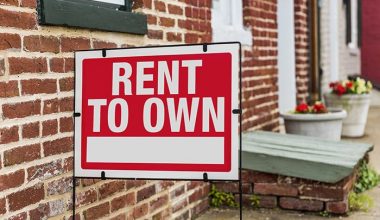If you’re unfamiliar with the term “disclosed property marketing,” it indicates that only the most basic information is made available to the general public. Off-market properties, on the other hand, frequently sell more quickly and with less fuss. It is possible for Fine & Country to quietly market properties internally and privately. Real estate investing isn’t as simple as browsing the Multiple Listing Service (MLS) and selecting what you want because of the fierce competition to find housing in many locations. Investors in real estate today need to be resourceful, which often entails finding deals that aren’t on the open market. The focus of this article is on how to find or identify off-market properties for sale.
What Are Off-Market Properties?
It’s all in the name, isn’t it? In most cases, it is a property that has never been put on the market in any fashion. This property is not listed on the usual property websites, it is not being sold by your usual high street agents, and it will not be sold at auction. Using conventional methods, you will be unable to locate it.
For the most part, it’s done by directly contacting the seller.
A true off-market property would have a limited number of potential buyers and potential renters who are aware that it exists.
So, Who Sells Off-Market Properties?
It’s possible to find an off-market house being sold by a developer or an agency, but it’s quite uncommon.
Property owners or landlords who desire to sell a specific piece of real estate, whether quickly or discreetly, are more likely to have the property in question already under their control.
Why Would a Seller Keep a Property off the Market?
There are several reasons a seller might not list their property.
#1. Seller’s Market:
It’s common for sellers in a seller’s market to be able to hang on to their home until they receive the best possible offer. It’s not uncommon for real estate brokers and consumers to make offers on homes even if they aren’t actually for sale.
#2. Foreclosure With Tenants:
If the seller has tenants and does not want to notify them that the house is for sale, they may choose not to list the property even if it is nearing foreclosure.
#3. Pocket Listing:
Using a “pocket listing,” a seller might employ a real estate agent to market his or her house to a select group of buyers. Agents in this situation may contact their clients personally or share pocket listings with a select set of other agents in the region.
#4. Not Available to Show:
MLS listings must be readily available for viewing to be shown. A home may be temporarily removed from the market if the seller is not accessible for showings. This is when a listing agent will put the property on “temporary hold.”
#5. Coming Soon:
On the MLS, you may come across a property marked as “coming soon” if the seller wishes to test interest before putting it on the market.
How To Find Off-Market Properties
#1. Direct Mail Marketing
Direct mail marketing is a great approach to uncovering off-market real estate opportunities. Send postcards or other advertisements to potential house sellers expressing your desire to purchase their property. Homeowners may not be ready to sell until an acceptable offer is made to them.
Make sure you do your homework before employing this marketing technique. You need to know the characteristics of your ideal customer and the best places to advertise to get your message out there to them. There are countless possibilities, from postcards and yellow letters to adverts on bus benches.
It’s also crucial to remember that direct mail campaigns can take some time to bear fruit. If you send out multiple direct mail campaigns with no response, don’t get frustrated.
In order to find off-market properties, real estate opportunities are still one of the finest methods for doing so.
#2. Online Resources
It’s possible to find or uncover off-market properties(offers) on websites like Zillow and TrueLocal, even if most of their listings are for houses listed on the MLS. How? For example, consider Zillow. Before the MLS listing date, sellers can use Zillow to list their property. As a result, investors should monitor these sites frequently to keep ahead of the competition.
Off-market real estate listings can be found on several websites. Opendoor, a website that allows real estate transactions to take place without ever being placed on the MLS, promises a variety of benefits for buyers and sellers.
HouseCashin Investment Property Marketplace is a marketplace for real estate wholesalers and investors. Off-market, distressed, and other types of properties that are sought by residential real estate investors are the focus of this site.
When searching for homes online, keep in mind that you may have more luck with more proactive lead creation tactics. Off-market listings published on the internet may be highly competitive due to the widespread use of the internet. To that end, don’t discount this approach altogether; you never know what you’ll find.
#3. Networking
In the real estate sector, networking is the best way to generate leads, and this holds for off-market homes as well. Don’t be scared to put yourself out there; networking might get easier with practice.
Search for local real estate events to meet people in your area and build your network. You can check with your local REIA, bulletin boards, or Facebook to see if there are any clubs in your area that meet regularly.
Your existing real estate contacts may also be able to help you expand your network. Networking in the off-market is the most common method of discovering and acquiring deals that aren’t publicly available. If you’re looking for off-market real estate opportunities, I highly advocate creating a network of real estate investors.
#4. Real Estate Agents
To find properties on the MLS, Real estate agents are experts at it, but they’re also adept at spotting opportunities that aren’t on the market. When looking for a home, it’s best to work with a Realtor who has experience in the area you’re interested in. It is common knowledge among real estate agents that homes are likely to hit the market.
You should compile a list of the best real estate agents in the market area where you plan to invest. You can get in touch with them by phone or email to see if they’re aware of any off-market listings. However, before contacting an agent, make careful to check their website; oftentimes, their pocket listings are listed there.
Remember that just because a certain real estate agent is unable to assist you in your current quest, it does not rule out the possibility that they will be able to in the future is another consideration. Make sure everyone you come into contact with has your name, phone number, and email address.
#5. Builders & Contractors
In order to find off-market properties as an investor, seek off-market deals, and make friends with builders and contractors, in addition to real estate agents. When a homeowner or investor abandons a construction project because they lack the funds to complete it, local builders are frequently aware of it.
Even though this is a bad situation for the seller, it can be a golden opportunity for the investor who is willing to step in and finish the task, allowing them to make money at closing.
There is regular communication among contractors and other tradespeople. Be sure to be absolutely upfront throughout all of your networking interactions, since if you’re lucky, they may lead you directly to local pocket listings.
Get the word out that you’re a real estate investor looking for properties that aren’t on the open market. It is only via this method that you can begin to gain the trust and respect of other real estate agents in your area of expertise.
#6. Wholesalers
If you’re an investor and want to find off-market properties, wholesalers can be a valuable resource. Why? Real estate wholesalers, on the other hand, only deal in wholesale.
If you’re interested in learning more about wholesaling and the process of discovering a discounted property that may be sold for profit, here’s what you need to know. Wholesalers often uncover off-market homes that are discounted.
It is important to remember that working with a wholesaler is similar to working with a middleman, which means that you may not get the best value possible.
Connecting with wholesalers is a great way to learn about off-market properties in your area in general terms. Even if they don’t currently offer you any opportunities, you should keep in mind that they may contact you in the future if an opportunity arises.
#7. Public Record
Pre-foreclosure and short-sale homes can be successful investments if public records are kept up-to-date, so it’s a good idea to keep track of them. To do so, I recommend looking through local and state media, as well as government websites. It isn’t uncommon to see real estate properties that are about to be put up for sale being mentioned by these sources.
You can also find off-market real estate deals by setting up alerts on websites like HUD Home Store, which can notify you when new properties come on the market.
You may also come across expired postings when looking through public records. Don’t be hesitant to get in touch with the seller personally in these cases. Real estate investors should keep an eye on public records, as they could lead them to a new deal in the future.
#8. Word Of Mouth
Investing in real estate is a people’s business, no matter how you cut it. To ensure that everyone you come into contact with knows exactly who you are, what you’re all about, and how they can get in touch with you, Using word of mouth to promote your business is a great way to get people to remember you when they find or come across off-market properties. It’s a lot like putting together a network.
Even if they aren’t directly active in the real estate industry, don’t be afraid to reach out to them. Your next investment opportunity may come from an unexpected source.
#9. Real Estate Auctions
Because of the constant supply of off-market properties available at auctions, they are an excellent source for property speculators. Browse auction websites for deals with promises regularly to discover auction properties.
If you’re looking for potential leads, I suggest checking out RealtyTrac or Auction.com. In addition to scanning online, you can keep track of auctions in the county courthouse or through your network connections. It’s important to keep an eye out for two basic sorts of auction assets;
Foreclosures:
Depending on the county, foreclosures are handled in various ways, but the overall procedure remains the same. These properties are frequently offered for sale “as is” at a discount from their market value. Before investing in a foreclosed property, obtain as much information as possible.
Even though foreclosures can be wonderful prospects, they may have liens or other downsides that reduce the deal’s overall value. A little pre-auction study will reveal all of these problems.
REOs:
Houses that lenders own as a result of a failed foreclosure auction are known as REO properties. Another strategy to get a good deal on a home is to look for properties that aren’t on the open market. Investors, on the other hand, should still inspect these properties.
While a lender is unlikely to make alterations or repairs in the same way a traditional seller may, it is crucial to obtain the complete picture before bidding on the house. REOs can be a terrific off-market investment option if you pay attention to the details and do your homework.
Verify the status, location, and bidding procedure of a desirable property once you’ve found it (and be prepared to act fast). If you plan on attending a real estate auction, make sure you’ve done your homework first.
Do your homework on the area and the property’s specifications, and stick to your budget. If you decide to participate in a real estate auction, following these procedures will help you keep organized and on budget.
#10. Driving For Dollars
Finding off-market properties by driving around areas can be a fun and effective experience for buyers. Investors drive about in quest of new opportunities, as the name implies. Vacant or distressed properties are the most prevalent kind of deals you’ll come across because they’re the most obvious off-market properties.
Keep an eye out for overgrown yards, strewn goods in the yard, or boarded-up windows if you want to identify abandoned or damaged properties. Make a note of any email addresses you come across that could turn out to be future customers.
Once you’ve written down the addresses of probable vacant properties, the following step is to look up the owners in the county records using the information you gathered. Inquire about the home’s state with the owner, once you’ve located him or her. Prepare a list of questions to ask when you receive contact information, such as a phone number or email address.
These should assist you in determining whether or not you can purchase the home and whether or not it would be a wise investment on your part. Driving for cash is a completely free method, but it takes a lot of time. In some areas, searching for off-market properties may be a viable option.
Off Market Properties for Sale
Below are some examples of some off-market properties for sale
1 Bedroom Flat
Estate Agents Valuation: £105,000
National Residential is delighted to offer this 1-bedroom top floor flat with a lovely open terrace
Click here for more info on off-market properties for sale.
1 Bedroom Flat
Estate Agents Valuation: £282,000
Location: 4 Tavern Apartments, 102 Bird In Bush Road, London, SE15 1BQ,
Buy It Now: £285,000
Well presented, One Double Bedroom flat in a popular location in Peckham, London.
Click here for more info on off-market properties for sale.
3 Bedroom Semi-Detached House
Estate Agents Valuation: £181,000
Location: Blakesley Mews, Birmingham, B25 8TU
Buy It Now: £181,000
National Residential is delighted to offer this well-presented, 3 bedroom semi-detached family home which is located in the sought-after area of Yardley.
Click here for more info on off-market properties for sale.
40 Bedroom Flat
Buy It Now: £1,400,000
Location: Coronation School Block Portfolio, SA72 6UU
Located in Pembroke Dock, South West Wales, this freehold block of 40 self-contained rental units generates net yearly rent of £159,800 and a net yield of 11% for National Residential’s clientele.
Click here for more info on off-market properties for sale.
What Are the Advantages of Buying off Market?
Less Rushed:
Investors can take their time looking at the property before making an offer on an off-market home because the owners are usually not in a hurry. In this case, you will not have to compete with other purchasers to submit an offer.
Unique Deals:
Sellers are unlikely to want a bidding war unless they have contracted with an agency to offer their home as a pocket listing. Perhaps they’re concerned about their privacy or are simply seeking to sell the house quietly. You may be able to strike a deal in these situations.
More Inventory:
Searching for properties that aren’t on the open market enhances the number of options you have. Your competitor in a heated real estate market is everyone else looking to buy a home. Searching off-market improves the number of options available to you while excluding your competitors from the process.
Less Stress:
In off-market transactions, there is less of a time crunch, making them easier and more flexible. It’s a buyer’s benefit if the property is distressed because the seller doesn’t have as much leeway to put conditions on the sale.
Disadvantages of Buying off Market
While there are plenty of pros to buying off the market, there are also a few cons to consider.
It Could Take Longer to Close:
If you’re in a hurry to close as a buyer, having a lot of time could be a disadvantage because the seller doesn’t have the same level of urgency as a property that has been posted. It’s also more time-consuming and labor-intensive to identify off-market offers than it is to search the MLS.
Harder to Determine Fair Market Value:
It’s easy to compare comparable properties, price per square foot, and other elements of property on the MLS because it all appears on one page. Fair market value is more difficult to estimate for a property that is only available to a limited number of potential purchasers. You’ll have to conduct your research into the local real estate market.
Fees:
Pocket listing services and off-listing markets may charge membership fees.
Conclusion
Many parts of the country’s real estate market are still hot, with more people looking to buy than there are available homes for sale. Angry purchasers who have lost out in auctions need all the help they can get. Off-market listings can still be accessed through the MLS Statement 8.0, which significantly restricts their access. If you do your research and are aware of the potential dangers, finding your next property through an off-market listing may be worth the time and energy you expend.
Off Market Properties FAQs
Can you ask for a property to be taken off the market?
Sellers have complete control over whether or not they will continue to promote their property, even if you have requested that they do so. Due to a buyer’s lack of financial stability, sellers may be reluctant to withdraw property from the market.
What are the Available Off Market Properties for Sale?
The available off-market properties for sale are
1 Bedroom Flat
Estate Agents Valuation: £105,000
National Residential is delighted to offer this 1-bedroom top-floor flat with a lovely open terrace, etc.






